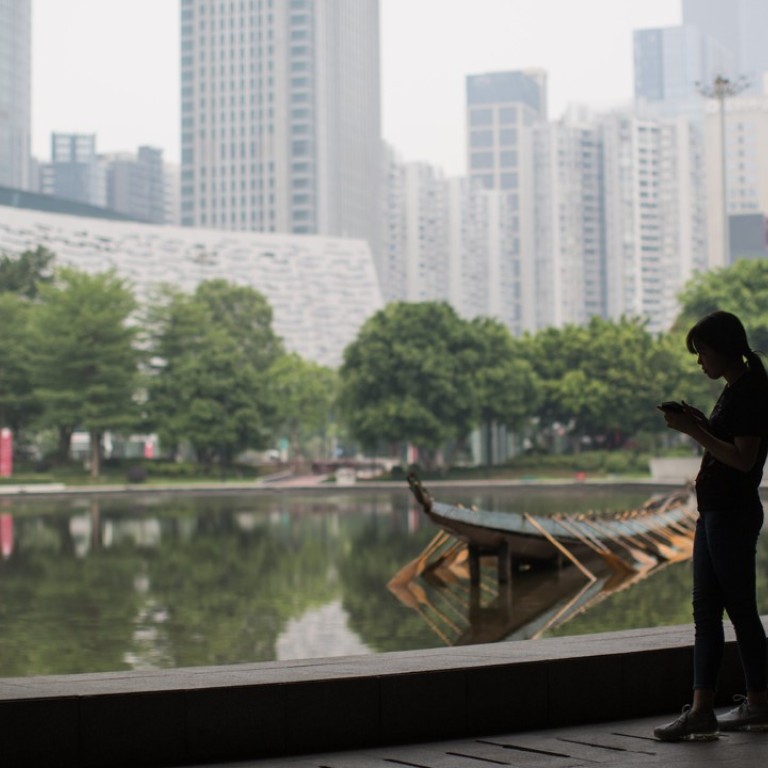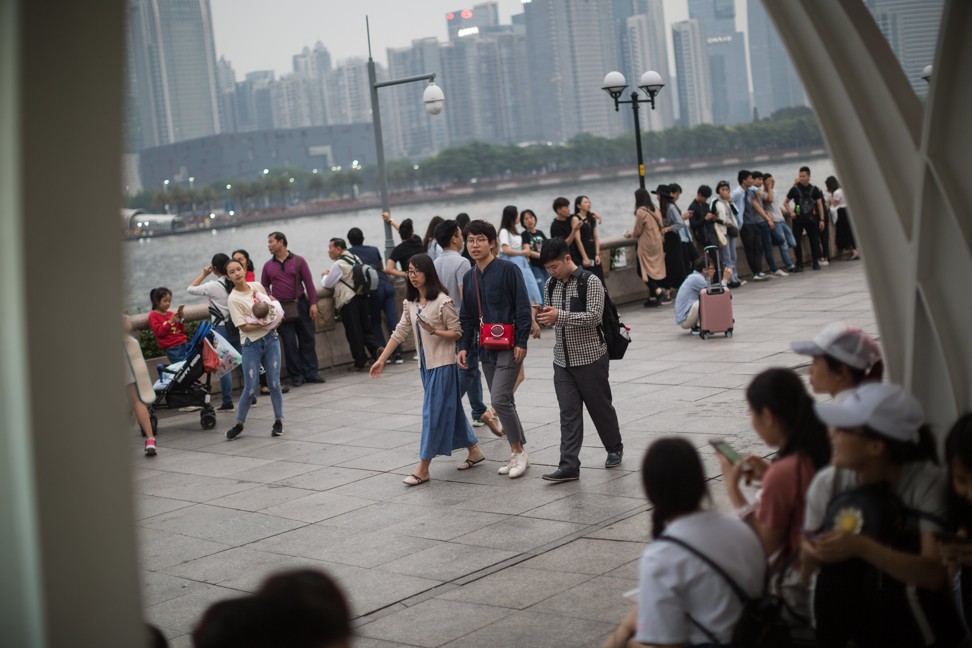
China’s export base hit by trade war offers sweeteners to lure professional services firms
Guangzhou city government unveils financial incentive package for new arrivals, while regional authorities look to shore up manufacturing
Authorities in one of China’s main manufacturing and export bases have announced a range of new incentives to attract and retain professional services firms in their latest bid to cushion the impact of a bitter trade war with the US.
Under new rules published by the Guangzhou government on Friday, companies that relocate to the city, as well as those that have done so since the start of last year, and that meet certain financial criteria, could be entitled to up to 10 million yuan (US$1.5 million) worth of financial incentives and as much as 2 million yuan in annual rent subsidies for up to three years.
Also, for those working in the professional services field and earning a pretax salary of at least 600,000 yuan, the government said it would pay annual cash bonuses of between 60,000 and 100,000 yuan.
China’s export base courting foreign investors as trade war bites
Guangzhou is the capital of south China’s Guangdong province and at the heart of the Pearl River Delta region, which as a whole has been keen to reinvent itself as more than just the home of manufacturing and exports.
The city government said the latest incentives – which also include helping new arrivals with housing expenses, education for their children and residence permits – were part of a much wider package to attract investors to the region.
While Guangzhou is keen to boost its professional services sector, which encompasses everything from law firms to IPR specialists and accountancy practices, the Guangdong government has been devising new ways to support the region’s traditional industries.
It recently eased its rules on foreign investors operating in the region, including, for the first time, allowing them to set up wholly owned factories to manufacture new-energy vehicles, aircraft, drones and other high-end products.
The provincial authorities said they were also finalising a package of 10 measures to support domestic manufacturing companies, which will include such things as tax cuts, lower rates for electricity and reduced transport costs.
Guangdong was the first Chinese province to feel the impact of the trade war with the US. Despite having a gross domestic product of more than US$1.3 trillion in 2017 – by comparison, Russia’s GDP for the year was US$1.6 trillion – its official purchasing managers’ index for August indicated a contraction in manufacturing activity for the first time in 29 months, falling to 49.3 and below the 50 point mark that separates contraction from expansion. The measure did, however, rebound to 50.2 in September.
Perhaps more worrying was another gauge that showed Guangdong’s exports in the first six months of the year fell 3.3 per cent from the first half of 2017, suggesting a downward trend even before Washington introduced new tariffs on Chinese imports.
Guangdong’s US$65bn plan to move up the hi-tech industry chain
Simon Zhao, a director of the International Centre of China Studies at Hong Kong University, said that while it was important for governments in the Pearl River Delta to attract new investors and talent, it was essential they did not neglect the region’s core industries.
“The incentives and subsidies will surely be welcomed by the services companies, but the top priority is still to stabilise the export-oriented manufacturing industry,” he said.


